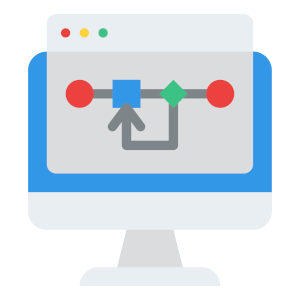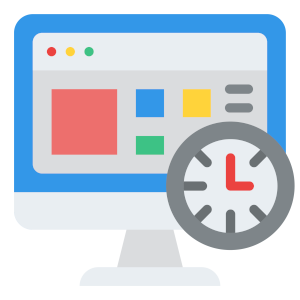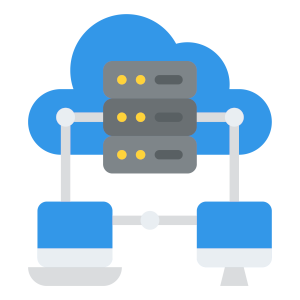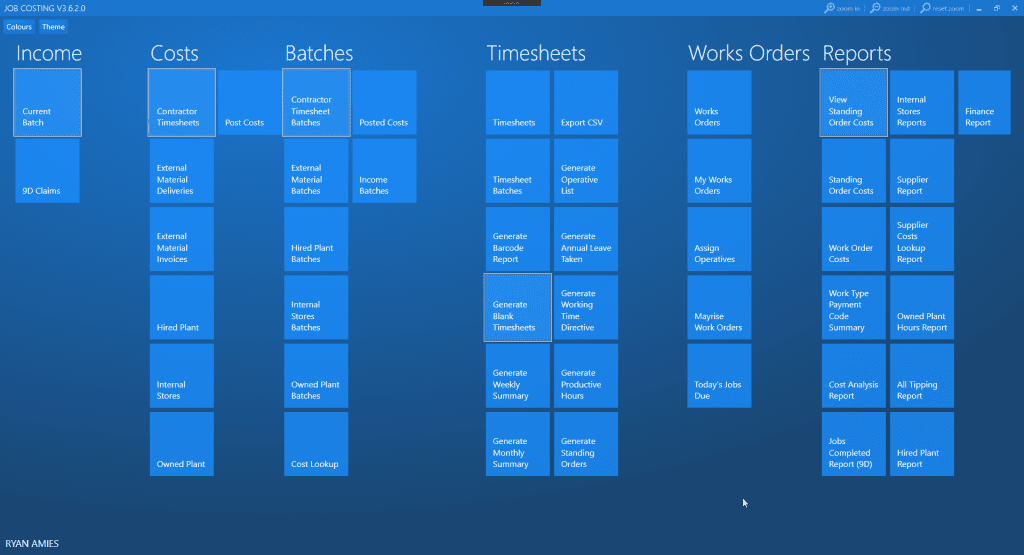Introduction
In today’s fast-paced digital world, technology moves quickly, but many businesses are still relying on older software systems to run their operations. While these systems may have served you well for years, it’s important to understand what they really are, how they might be holding your business back, and what options you have moving forward.
This article will explain what legacy software systems are and outline why businesses continue to use them, the risks and challenges they present, and the benefits of upgrading to a modern system. We’ll also answer some common questions and share expert insights from leaders in the software industry.
If you’ve ever wondered whether it’s time to move on from your existing software, this guide is for you.
What Are Legacy Software Systems?
Legacy software systems refer to old or outdated software and hardware that are still used by many companies. These systems have been in place for years and are crucial for daily tasks like managing databases, processing transactions, or controlling equipment. Although they still work, legacy software systems often struggle to keep up with modern technology. Their biggest challenge is integrating with newer technologies, such as cloud computing, mobile apps, and advanced security systems. Consequently, businesses relying on these systems may find it hard to digitally transform, which can impact their efficiency and competitiveness.
You’ll often find legacy systems running on ageing servers, using programming languages that are no longer supported, and lacking features most modern businesses now expect, like mobile compatibility, real-time reporting, or cloud connectivity.
A good example is a finance package built in the early 2000s that still runs on a desktop computer in your office, while your competitors are managing their accounts from cloud-based systems accessible from anywhere.
Find out more about the lifespan of old software!
Why Companies Stick with Legacy Software Systems
If legacy systems are outdated and risky, why do so many businesses hang on to them? The simple answer is because change can be difficult.
Here are some of the most common reasons businesses continue to rely on legacy software:
- It still works – If a system still performs its core function, many managers hesitate to replace it.
- Fear of disruption — Business owners often worry about the downtime and staff training needed when switching systems.
- Specialist requirements — Some older systems were built specifically for a business’s unique processes, and finding a modern equivalent can seem challenging.
- Budget concerns — Replacing software can be a significant investment, and without a clear understanding of the risks, it might not seem like a priority.
However, just because a system is familiar doesn’t mean it’s still the best choice for your business. That old code might be keeping your business from moving forward.
| As Grady Booch, IBM Fellow and software engineering expert, put it: 💬“Legacy systems are a big problem for many organisations. They represent decades of business rules embedded in old code.” (Source: IBM developerWorks interview, 2017) |
The Key Challenges and Risks of Legacy Software
While it might feel easier to stick with what you know, using outdated software comes with several hidden dangers:
Security Risks
Older systems often lack the latest security protections. They may be unsupported by the original developers, leaving them vulnerable to cyber-attacks. In today’s digital world, data protection is crucial, one serious breach could cost your business both money and reputation.
Rising Maintenance Costs
As systems age, they become harder to support. You might struggle to find developers with the skills to work on old programming languages, and maintenance costs can creep up over time.
Reduced Productivity
Legacy systems tend to be slower, clunkier, and harder to use than modern software. Staff may waste time working around problems, and systems might not integrate well with newer technology, leading to manual processes and duplicated effort. Ultimately, this can slow down your business growth and prevent you from expanding. We explore this in full detail within this article: “Is legacy software, slowing your business growth”.
Missed Opportunities
When your systems can’t support mobile working, real-time reporting, or cloud-based collaboration, your business may fall behind competitors who can respond faster and work more flexibly.
Signs It’s Time to Replace Your Legacy Software

It’s not always easy to know when it’s time to move on, but here are some clear warning signs:
- Frequent crashes or system errors
- Slow response times
- Difficulty integrating with new tools
- Rising maintenance costs
- Frustration from staff or customers
- Limited reporting and business insights
- Security concerns or compliance issues
If you’ve experienced any of these problems, it’s a good idea to review your current system. Our article explains this in more detail and is designed to help you recognise whether your software has ‘reached the end of the road.
Legacy systems often lack the clarity and maintainability modern systems are built with, making upgrades difficult and risky.
| As Martin Fowler, respected software engineer and author, once said: 💬“Any fool can write code that a computer can understand. Good programmers write code that humans can understand.” (Source: Refactoring: Improving the Design of Existing Code, 2004) |
The Benefits of Modernising
The good news is that moving to a modern system doesn’t just solve problems, it opens up new opportunities for your business. Below is a brief summary of the benefits of modernising your software, if your ready to move on please read our article, which will get you started.

🔹 Lower Long-Term Costs
Although upgrading involves an initial investment, it can reduce ongoing maintenance costs and prevent expensive problems later on.

🔹 Improved Security
Modern systems are built with up-to-date security features, reducing the risk of cyber-attacks and data breaches.

🔹 Better Productivity
Faster, more reliable software helps your team work more efficiently, reducing downtime and frustration.

🔹 Real-Time Insights
Modern software often includes advanced reporting and analytics tools, helping you make smarter, data-driven decisions.

🔹 Use of Modern Devices
New systems are designed to work smoothly on mobiles, tablets, and other modern devices, so your team can stay connected and get things done wherever they are.

🔹 Cloud-Based Storage and Access
Using cloud services means your files and systems are safely stored online, making them easy to access, share and back up, while reducing the need for bulky in-house servers.
FAQs About Legacy Software Systems
| ❓ What is bespoke software? |
| Bespoke software is a custom-built application created specifically for your business’s needs. Unlike off-the-shelf solutions, it’s tailored to match your processes and can grow with your company. |
| ❓ Is it cheaper to fix or replace legacy software? |
| In the short term, patching old systems may seem cheaper. But in the long run, rising maintenance costs, inefficiencies, and security risks usually make replacement the smarter financial choice. |
| ❓ How long does it take to replace a legacy system? |
| It depends on the complexity of your current setup and the new solution you choose. Small systems may take a few months, while larger or more complex migrations might need up to a year. A good software provider will help plan a smooth, phased transition. To reduce time to launch and spread the costs, it is possible to start with a core system that embodies all the essential features and then non-essential elements can be added, while the new system is already in use. |
| ❓ What are the biggest risks with old software? |
| Security vulnerabilities, rising costs, lost productivity, and falling behind competitors are the biggest dangers of sticking with outdated systems. |
Why Choose BSPOKE Software?
BSPOKE Software is the ideal partner for modernising legacy software systems. With over 15 years of experience, we specialise in creating custom software solutions for desktop, mobile, and web platforms. Our expertise ensures that we can design systems tailored to your specific needs, regardless of the complexity.
Moreover, we have a strong track record of successfully replacing outdated systems for our clients. Our deep understanding of both legacy technologies and modern development practices allows us to transition businesses smoothly to more efficient, secure, and scalable solutions. For a software consultation to see how we can help modernise your systems and improve your operations, contact BSPOKE today.
Case in Point: Leicester City Council’s Highways Department
One of the best examples of legacy system replacement comes from our work with Leicester City Council’s Highways Department.
The council had been using a Microsoft Access-based system from 1997 to manage job costing for roadworks. Over the years, the system became difficult to maintain, requiring numerous workarounds and patches just to function.
BSPOKE Software developed a modern, integrated desktop application called Job Costing, designed to track job performance, costs, and scheduling across the city. The new system featured a modern user interface, robust document production tools, barcode job allocation, integrated real-time data sharing, and advanced reporting.

The results were immediate: smoother workflows, reduced manual effort, and greater operational oversight. The upgrade didn’t just fix what was broken; it completely transformed how the department managed its work.
Read the full case study here – Replacing a Legacy Software System for Leicester City Council.
Final Thoughts
Legacy software systems are often part of a company’s history, but if they’re holding you back, they shouldn’t be part of your future.
Recognising the signs of outdated software early, understanding the risks it presents, and proactively planning for a replacement can save your business both time and money. More importantly, it can unlock new opportunities for growth, efficiency, and competitive advantage.
Bespoke software is a smart choice for replacing legacy systems, whether you’re a small business or corporate entity. It’s designed to meet your business’s unique needs, can scale as your company grows, and offers better efficiency and security. While the initial cost may be higher, the long-term advantages; like improved integration and reduced maintenance costs; make it a worthwhile investment.
If you suspect your business might be relying on legacy systems, now is the time to explore your options. Contact BSPOKE Software today to find out how bespoke software could help move your business forward.

